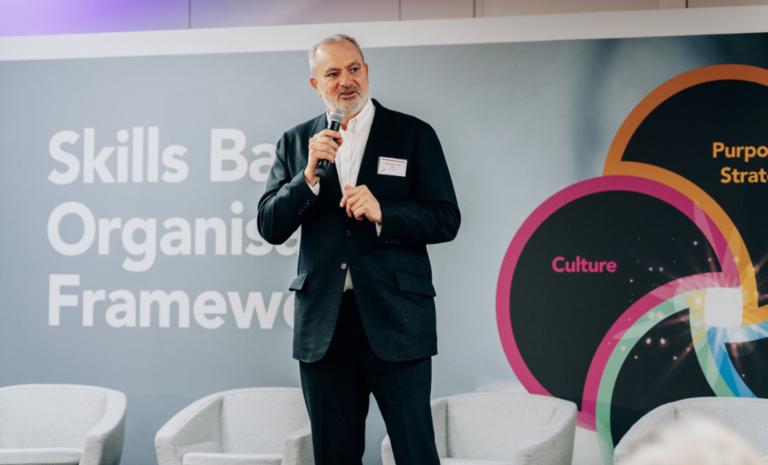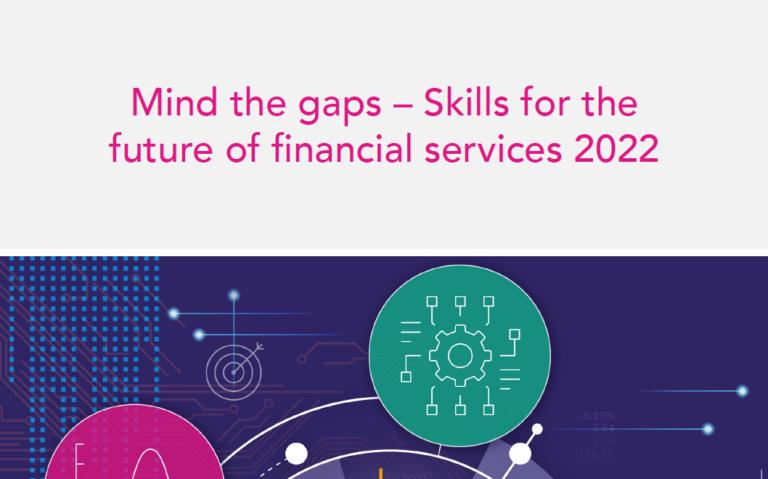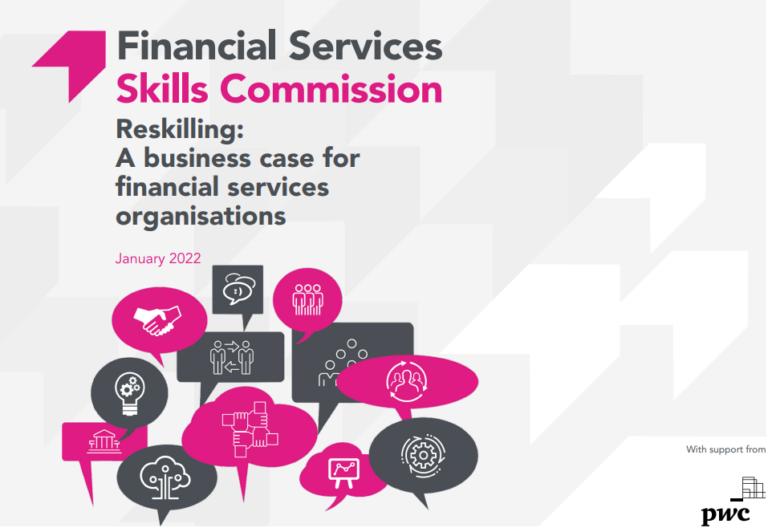22 May 2025
Skills shortages are a major barrier to AI-driven growth

- Report shows that the skills gap in financial services will prevent the sector from unlocking the growth opportunities of AI
- Almost every role in financial services will be changed by AI but only 1.5% of workers will require ‘expert’ AI skills
- New data shows that despite a 17.5-fold increase in demand for conversational AI skills, the demand for relationship management and empathy outweighs demand for most technical skills
- Roles that will be most impacted by AI include financial analysts, directors, account managers, and project managers
The significant growth opportunities of artificial intelligence can only be unlocked if financial services firms address the sector’s skills gap, according to a new report from the Financial Services Skills Commission.
The report – ‘Unlocking AI’s potential: The skills that matter’ – shows that amongst all UK industries, financial services will be the sector most impacted by AI, with disruption likely in the form of tasks, and roles, either being replaced or enhanced.
For most of the workforce, the report says, AI will enhance the demand for existing skills, rather than create new skills. And while AI specialists provide essential expertise, they make up a small share of the workforce (up to 1.5% of workers), whereas an understanding of AI is required across the entire workforce.
However, there remains a 35 percentage point gap between AI-related skills demand and the availability of talent.
The sector has seen a 17-fold increase in demand for conversational AI skills since 2021. Despite this, new vacancy data – published today in collaboration with EY and Simply Get Results – shows that the demand for relationship management and empathy outweighs demand for most technical skills. This means that the evolution of AI will place a premium on uniquely human qualities.
Artificial intelligence is projected to add £26bn of value to financial and professional services by 2030. In the report, the Commission calls upon financial services firms to take action on the skills challenge, in order for the sector take reap the growth potential offered by AI.
According to the report, the financial services roles most impacted by AI include financial analysts, directors, account managers, and project managers. HR managers and HR administrative roles are most likely to be impacted by large language models.
The research was unveiled today at the Future Skills Conference in London, an event held in partnership between the Financial Services Skills Commission and TheCityUK.
Claire Tunley, Chief Executive of the Financial Services Skills Commission, said: “Artificial intelligence offers tremendous growth opportunities for the financial services sector. It will help us to produce better products, improve our data analytics, and significantly enhance the way we serve customers. But that growth can only be unlocked by collectively addressing skills gaps.
“Every single role will be altered by AI and our report shows that human behaviours – rather than technical skills – will be in greatest demand. That’s why firms need to prepare for AI adoption, right now, by assessing their skills needs, building targeted training programmes, and collaborating to develop our collective knowledge of the key trends.”
Nathan Sasto, Partner, Financial Services People Consulting at EY, said: “AI presents an enormous opportunity for the financial services sector, but its successful adoption hinges on the sector’s ability to bridge the widening skills gap. This research makes clear that while technical expertise remains important, it’s human-centred capabilities – such as empathy, adaptability, and relationship management – that will deliver the greatest value. Recognising this is essential to shaping a more holistic and effective AI reskilling strategy.”
John Guy, Chief Executive Officer at Simply Get Results, said: “AI technology has begun to transform financial services. But as competition for AI skills grows, the data tells us not to forget the complementary human skills that unlock this potential. Employers should act now to identify the right mix of technical and human skills needed to meet their unique business goals, enabling decisive action to build those skills through reskilling, upskilling or hiring.”
The full report, including further data and analysis, is available here.





